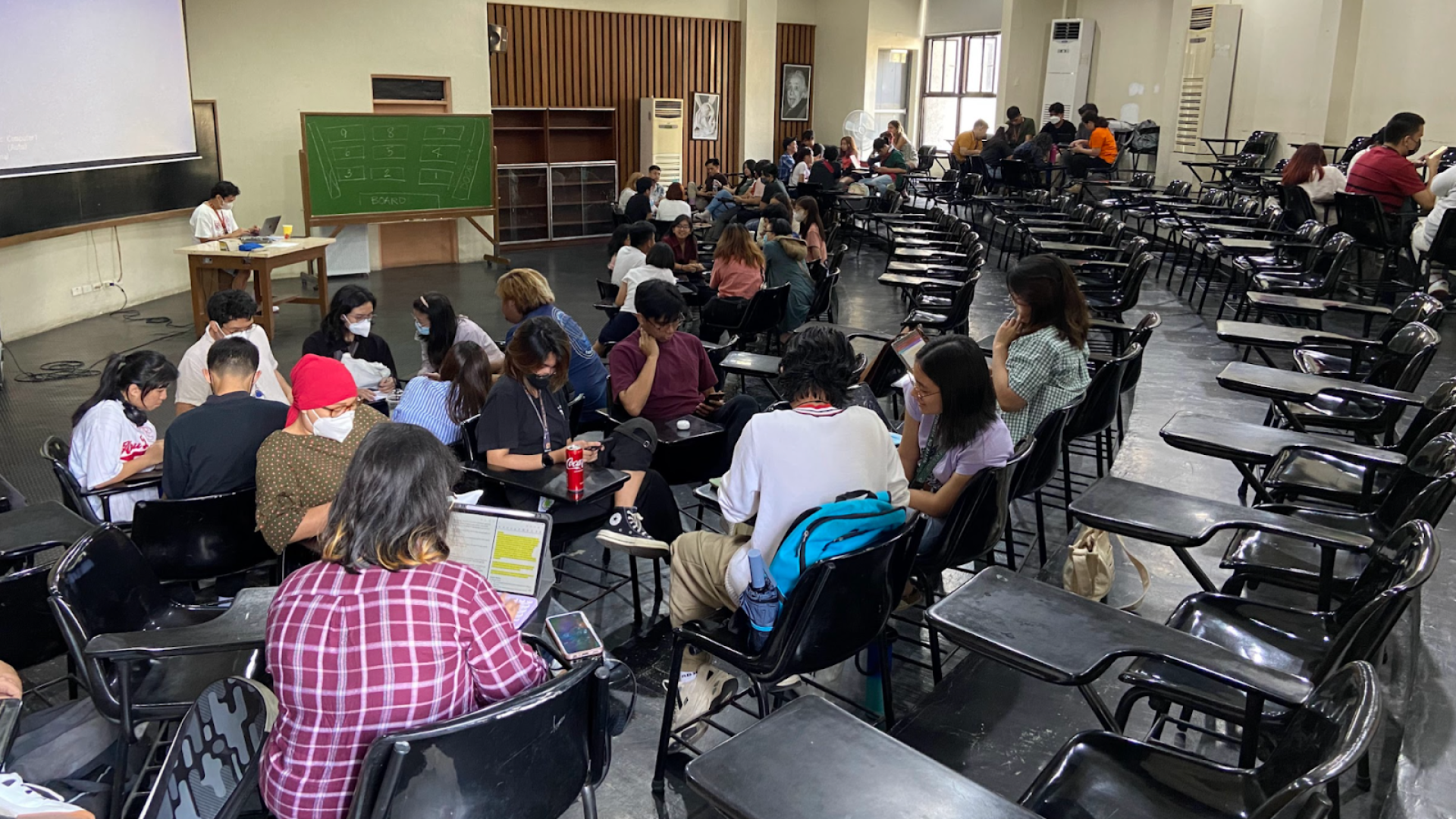 Tight academic calendar schedules, ineffective reading breaks, and slow responses to mental health needs are among the pleas of CS students in the student-led CS-wide consultation held at the National Institute of Physics Auditorium on February 12, 2024.
Tight academic calendar schedules, ineffective reading breaks, and slow responses to mental health needs are among the pleas of CS students in the student-led CS-wide consultation held at the National Institute of Physics Auditorium on February 12, 2024.
The student-led event, organized by the CS Student Council (CSSC), was an avenue for CS students to raise issues on the academic calendar, reading breaks, learning modes, and student welfare. “It’s important to gather these sentiments as we gear forward to a much better system and policies in the future,” CSSC Chairperson Zedwin Sta. Monica said.
One of the most common sentiments of students was the tight academic calendar schedules. The first-semester schedule, from September to January, only included a few days of holiday break. Some expressed concern that it had been too short to justify spending expensive travel fees to return home to their provinces. A few chose not to make the trip at all and used the break to catch up on requirements instead.
A few students suggested that a first-semester schedule of August to December, and a second-semester schedule of January to May, would provide for a better academic year where students can enjoy the holiday break without needing to worry about their academics.
Another sentiment of students is the ineffective reading break. “Parang reading nalang siya, wala nang break,” one student said, alluding to the deadlines and exams scheduled immediately after the reading break, which forced students to instead use the time to finish requirements and prepare for exams.
The one-week reading break, the students suggested, should be separate from the 16-week semester schedule to avoid compressing academic workloads and give students a genuine week to recharge.
Lastly, a few voiced out the need for a faster response on the psychological services of the University. One student recalled her experience of having to wait two months for a response from PsycServ, or UPD’s psychological services.
They suggested giving more funding to mental health services, that one guidance counselor should be available for each institute, and that the CS wellness center should be made active again.
A total of 55 undergraduate and graduate students from different institutes attended the CS-wide student consultation. “The discussion was successful because the participants are very insightful and participative in their focus group discussions,” Sta. Monica said.
The CS Administration will review the student’s concerns and present them at the next college assembly and university council meeting. “We also plan to aid the CS Admin, should they craft position papers, amendments to the policies, etc.” Sta. Monica added.





